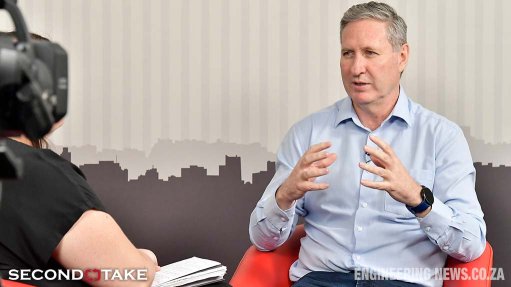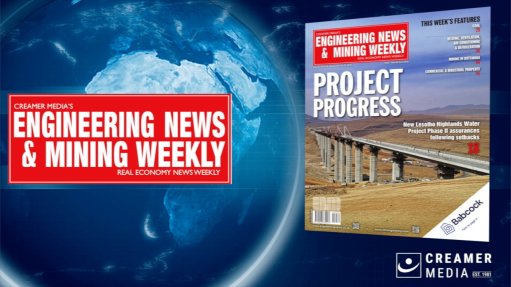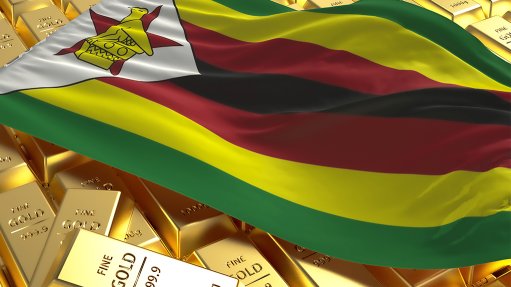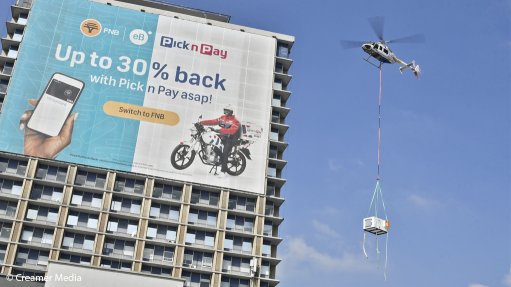Support programme aims to improve local content production capacity
Local manufacturers find it difficult to participate directly in the value chain supplying components for commercial vehicles owing to stringent requirements. As a result, many downstream suppliers are unable to make use of local upstream producers.
Industry support programme the National Foundry Technology Network (NFTN) aims to provide technical support to allow local foundries to fulfil the product needs of more South African original-equipment manufacturers (OEMs) and component manufacturers.
NFTN technology transfer and localisation project manager Isidore Kilongozi says the NFTN is planning a number of projects to support manufacturers to address competitiveness challenges of the sector and will engage with the automotive sector on its needs, with a view to capacitating the metal casting industry.
“The NFTN typically sees four pillars on which OEMs and other manufacturers base their decision to import or source locally. These are related to price, quality, quantity and delivery time,” he explains.
Kilongozi adds that the NFTN works with the local metal casting industry to address these challenges at plant level.
“The local metal casting industry is prepared to comply with product performance criteria set by buyers of automotive components. “It is their hope that OEMs will get behind these local suppliers to stimulate suppliers to improve processes and competitiveness.”
Kilongozi adds that local foundries, in turn, face the challenge of insufficient orders to allow their specialised operations to be competitive.
The NFTN, a programme implemented at research body the Council for Scientific and Industrial Research (CSIR), is government funded through the Department of Trade, Industry and Competition (DTIC) – and so its services are subsidised to revitalise a struggling metals casting sector.
While the NFTN stops short of providing actual funding, the programme does fund the costs relating to productivity and tooling improvements required to address these challenges.
“We need the downstream manufacturers, including OEMs, to share their needs so we can assist local companies to turn these into opportunities,” urges Kilongozi.
The automotive sector provides a massive opportunity for the South African economy, and the foundry subsector in particular, in which local companies can produce high volumes with self-evident economic benefits.
“South Africa’s foundry industry is specialised in the casting of ferrous metals, that is metals containing iron. Owing to the strength of iron, this metal is used widely in the production of automotive parts across the globe. Wheel hubs, engine manifolds as well as brake discs, shoes and drums are some of the parts that local foundries can cast,” he states.
Yet many of these parts are still being imported. Kilongozi stresses that this is where it comes down to identifying whether the challenge is price, quality or quantity.
Many manufacturers import these parts because they can get them cheaper elsewhere.
The most expensive step in production of these parts is in the development of the tools in the foundry, including the patterns and the cores.
A pattern is a replica of the exterior of the casting and patternmaking is incredibly important for part-making, where precise calculations are needed to make pieces fit and work together. If a casting is hollow, an additional piece of sand or metal shapes the internal form to make it hollow – this is the core.
He contends that perfecting these is critical, since a high-quality product starts with a quality tool, but the process is often costly. NFTN projects help to cover the investment costs of producing these tools, after which the foundry has the dyes, and the intellectual property, needed for the castings.
Kilongozi explains that it is usually not viable for a foundry to invest in these steps unless they have the assurance of large orders to recoup their costs. “If we can alleviate some of these costs with our expertise and interventions such as new technology and software, then the unit price of the final product can be bought down, addressing the competitiveness concerns of the downstream users.”
He does, however, point out that sometimes the barrier is not price, but a lack of capacity to fill the large orders of an OEM, assembler or component manufacturer – the quantity, or volume, challenge. This is a “double-edged sword”, since foundries need large orders to have the funds to improve capacity, but can often not take the orders owing to capacity constraints.
Because the iron-cast automotive components are consumables, there is the potential for high volume orders, if the foundry is able to meet them.
“One of the reasons that a foundry may not be able to meet the volumes requested is the high percentage of unusable, or wasted, product. If we at the NFTN can assist them to improve their quality management or consistency in processes, then that improves the yield of the foundry, which allows assemblers or downstream manufacturers to produce more parts,” explains Kilongozi
The final challenge, the quality of the metal products, is the area where the NFTN and CSIR expertise can be of value. Many of the local foundries are not able to keep top-end metallurgy skills in-house, and the specialists of the NFTN and CSIR teams can advise.
Once a challenge is identified, then the NFTN often has the funding available to address this issue. The NFTN addresses technical-related challenges ranging from product development, tooling support, and process and productivity improvement.
Some of the advisory support the NFTN can give is in the area of metallurgy technical advice. Some parts of automotive components such as brake discs, drums, shoes, and wheel hubs are made of cast iron. Metallurgical knowledge and experience of casting this specific metal has a proven track record in South Africa.
The accuracy of this process will clearly affect the quality of the end product. It is in processes like this that the NFTN and CSIR excel, and are available to help foundries meet the stringent international standards that the automotive sector requires.
“The bottom line is that South Africa has the potential to make more of its own component parts. While there may be shortcomings with in-house skills, quality and volumes, these can be addressed by engaging with support initiatives such as the NFTN,” concludes Kilongozi.
The programme has opened discussions with various automotive associations and OEMs to address the perceived and genuine shortcomings of the foundry sector, so that more components – and jobs – can be sourced locally.
Comments
Press Office
Announcements
What's On
Subscribe to improve your user experience...
Option 1 (equivalent of R125 a month):
Receive a weekly copy of Creamer Media's Engineering News & Mining Weekly magazine
(print copy for those in South Africa and e-magazine for those outside of South Africa)
Receive daily email newsletters
Access to full search results
Access archive of magazine back copies
Access to Projects in Progress
Access to ONE Research Report of your choice in PDF format
Option 2 (equivalent of R375 a month):
All benefits from Option 1
PLUS
Access to Creamer Media's Research Channel Africa for ALL Research Reports, in PDF format, on various industrial and mining sectors
including Electricity; Water; Energy Transition; Hydrogen; Roads, Rail and Ports; Coal; Gold; Platinum; Battery Metals; etc.
Already a subscriber?
Forgotten your password?
Receive weekly copy of Creamer Media's Engineering News & Mining Weekly magazine (print copy for those in South Africa and e-magazine for those outside of South Africa)
➕
Recieve daily email newsletters
➕
Access to full search results
➕
Access archive of magazine back copies
➕
Access to Projects in Progress
➕
Access to ONE Research Report of your choice in PDF format
RESEARCH CHANNEL AFRICA
R4500 (equivalent of R375 a month)
SUBSCRIBEAll benefits from Option 1
➕
Access to Creamer Media's Research Channel Africa for ALL Research Reports on various industrial and mining sectors, in PDF format, including on:
Electricity
➕
Water
➕
Energy Transition
➕
Hydrogen
➕
Roads, Rail and Ports
➕
Coal
➕
Gold
➕
Platinum
➕
Battery Metals
➕
etc.
Receive all benefits from Option 1 or Option 2 delivered to numerous people at your company
➕
Multiple User names and Passwords for simultaneous log-ins
➕
Intranet integration access to all in your organisation
















